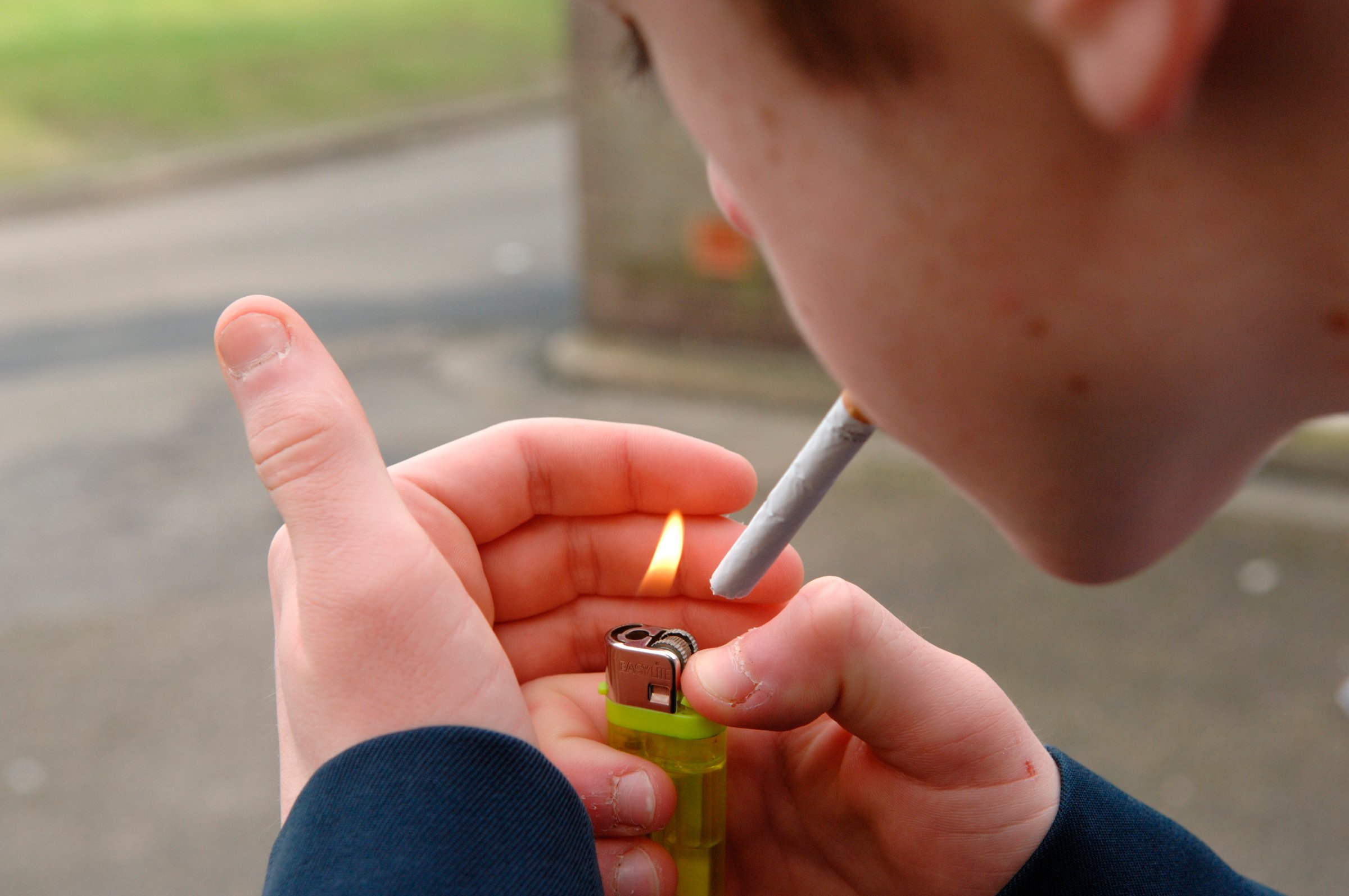
Over 1 in 5 high school students use tobacco products, and unless rates drop significantly, 5.6 million young people under age 17 will die early from a smoking-related illness, according to a recent report from the Centers of Disease Control and Prevention (CDC).
Among young people who use tobacco products, over 90% are using nicotine vectors like cigarettes, cigars, hookahs and pipes. The vast majority of smokers try their first cigarette by the time they turn 18. The findings were published Thursday in the CDC’s Morbidity and Mortality Weekly Report.
The CDC analyzed its National Youth Tobacco Survey and report that in 2013, 22.9% of high school students and 6.5% of middle schoolers said they had used tobacco in the last 30 days. Those rates are slightly down from 2012, where 23.3% of high school students and 6.7% of middle schoolers said they’d used some form of tobacco in the last month. Unfortunately, the new numbers still show that close to 50% of all high schoolers and almost 18% of all middle schoolers have used a tobacco product at least once.
What about e-cigarettes? They’re still less popular than the traditional products: 4.5% of high schoolers and 1.1% of middle schoolers said they used them in the last month. How great of a problem e-cigarettes are for public health is still debated, but the products do contain nicotine, so therefore considered unsafe for kids.
One item of particular concern to the FDA are cigars, because they are taxed at a lower rate and often made to look like cigarettes, even having fruity flavors. Some are not regulated by the FDA in the way cigarettes are, which experts cite as a major concern.
Cigarette smoking kills more than 480,000 Americans every year, and for each death, there are about 32 people living with a smoking-related illness. It costs the U.S. economy billions in medical costs and loss in productivity. One strategy to make smoking less appealing to young people (besides the long list of terrifying health risks, like lung cancer) is by hiking up the price of tobacco, and launching more youth-targeted social campaigns, the CDC says.
Smokers can get free help quitting by calling 1-800-QUIT-NOW.
More Must-Reads from TIME
- Donald Trump Is TIME's 2024 Person of the Year
- Why We Chose Trump as Person of the Year
- Is Intermittent Fasting Good or Bad for You?
- The 100 Must-Read Books of 2024
- The 20 Best Christmas TV Episodes
- Column: If Optimism Feels Ridiculous Now, Try Hope
- The Future of Climate Action Is Trade Policy
- Merle Bombardieri Is Helping People Make the Baby Decision
Contact us at letters@time.com